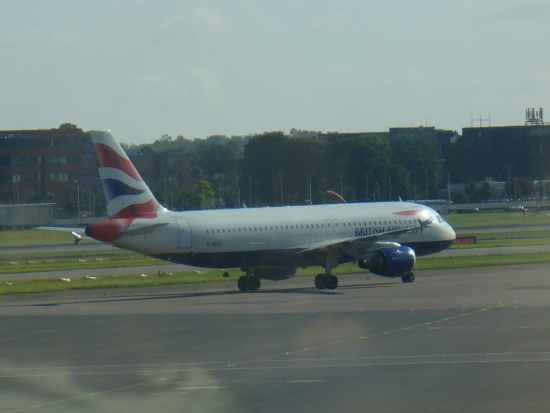With the Eurozone crisis escalating, many international tourists are being discouraged from visiting countries such as Spain, Italy and France due to the fact that inflation means they may not get a good deal for their money. Even in relatively stable countries such as Germany and Belgium, the single currency system means that their economies are not as revered as they once were.
As a result, much of mainland Europe’s traditional tourism base is redirecting to the UK, especially London, where international visitors are keen to take in the sights of Buckingham Palace, the Houses of Parliament and, of course, the recently constructed Olympic Village where the 2012 Olympic and Paralympic Games were held this summer.
However, the UK is not just a tourist destination, as it is also a major stopover on many international flights, with Heathrow Airport now being one of the most popular Hub airports in Europe. The principle of a Hub airport is rather simple – passengers living locally to a smaller airport are transported into Heathrow via air in order to catch the flight to their final destination.

In fact, around one third of Heathrow passengers are simply using Britain’s largest airport as a means of catching another flight, rather than it being the end of their journey.
Unfortunately, it seems that the UK’s largest airport is not large enough to achieve its full potential, according to a report released by Frontier Economics and commissioned by the airport’s bosses. It claims that a lack of capacity is costing the UK economy around £14 billion per annum in missed trading opportunities; a total which is expected to rise to over £26 billion per annum by 2030.
Given the current economic status of the UK, £14 billion every year is a substantial amount of money to miss out on, especially as poor October retail results have begun to spark fears of a triple dip recession. Yet the solution to the capacity issue is not exactly straightforward, as there are a number of financial and environmental factors to take into consideration.
Firstly, building another Hub airport in the UK seems to be out of the question, as the report claims that only one UK airport could operate as a Hub – making the choice “one Hub or none” as opposed to “two Hubs or one”. That narrows the choices down to three potential actions; adding additional space at Heathrow to accommodate a larger number of passengers, closing Heathrow and building a larger replacement Hub, or “letting the UK fall behind competitors.”
Colin Matthews, chief executive of Heathrow Airport, said; “If anyone was still in doubt about the importance of aviation to the UK economy, today’s report should lay those doubts to rest.
“The new work we are publishing today shows that only a single Hub airport can meet the UK’s connectivity needs and the choice is therefore between adding capacity at Heathrow or closing Heathrow and replacing it with a new UK Hub airport.
“Transfer traffic is the mechanism that makes routes economically viable – if you could not offer the feed, a lot of routes would not be possible.”
The report could be seen as yet another attempt by Heathrow operators to have planning approved for the desperately wished for third runway at the London airport, which so far the Government has denied several times.
Political director of Greenpeace, Joss Garman, certainly believes that it is the bosses of Heathrow that are looking to profit from this report by finally achieving their dream of a third runway, and says that this new report is simply a repetition of old arguments.
He says; “This completely biased report from the owners of Heathrow is out of sync with other more independent reports on London’s connectivity, and it simply recycles the aviation lobby’s tired and discredited arguments.
“The case for a third runway has never been weaker, and it is time the aviation industry woke up to the reality that Heathrow expansion will never happen because it would be political, economic and environmental madness.”
In response to the report, the Government has appointed a commission headed by Sir Howard Davies, which will be known as the Davies Commission, to examine the future requirements of airport capacity in the UK. An interim report is expected to be presented towards the end of next year, with the full report to be released in 2015. London Mayor Boris Johnson has already met with Sir Howard in order to discuss his plans for a new Thames Estuary airport, which would act as the Hub airport for the UK upon completion.
However, one further plan has been put forward following the release of Heathrow’s report – by rival London airport Gatwick. Owners suggest the construction of a second runway there would have a less negative impact than expanding Heathrow would.
A statement from Gatwick Airport said; “A new runway at Gatwick could be more affordable and practical than other options and give passengers a greater choice of routes to key destinations.
“Critically, we would have a significantly lower environmental impact compared to an expanded Heathrow.
“The Airports Commission needs to look to the future and not follow Heathrow’s monopoly past – it will need to decide whether a competitive airports’ network in London, delivering more passenger choice, connections, convenience and lower prices, is more preferable to propping up an outdated and unnecessary expanded Heathrow.”
Which of the alternatives do you believe would be best for Britain – expansion at Heathrow, an additional runway at Gatwick, or the construction of a brand new Hub at either Thames Estuary or elsewhere? Do you think the financial gains are worth ignoring the environmental impact an expansion of the aviation industry would bring, or do you believe that protecting the environment is worth taking an annual loss economically?
Previous Post
eBay Expands into China